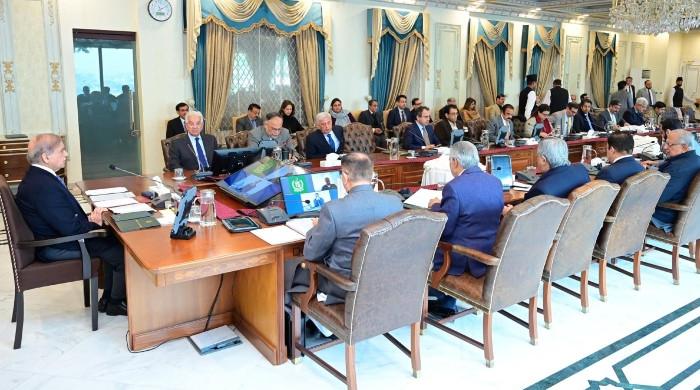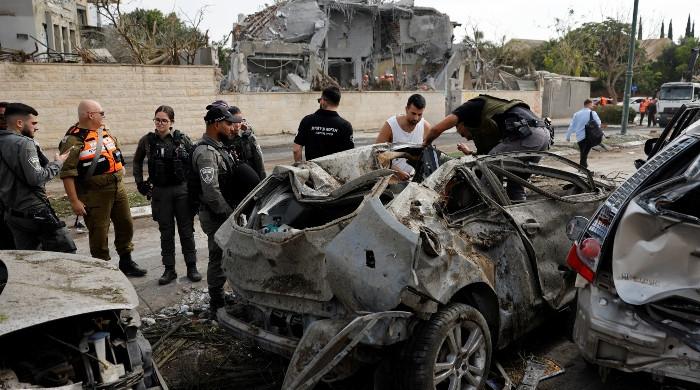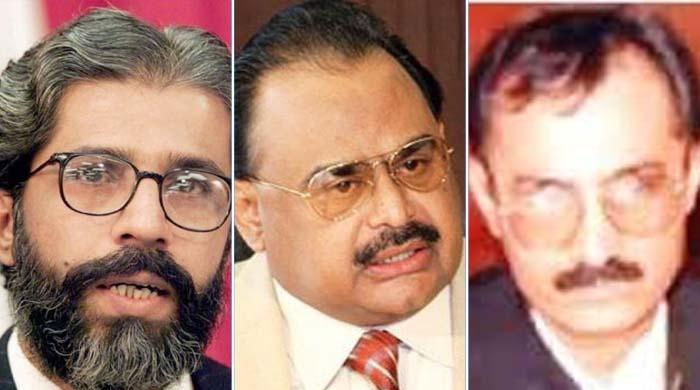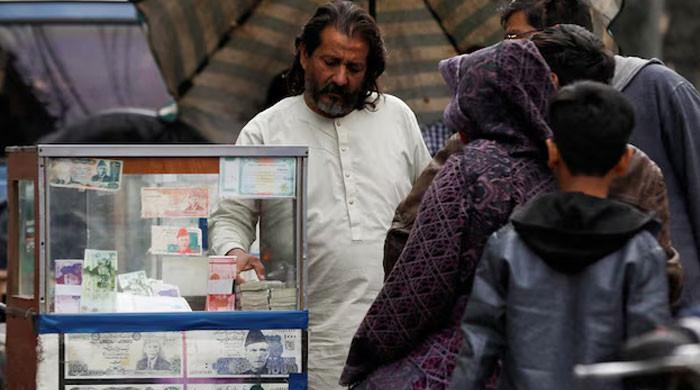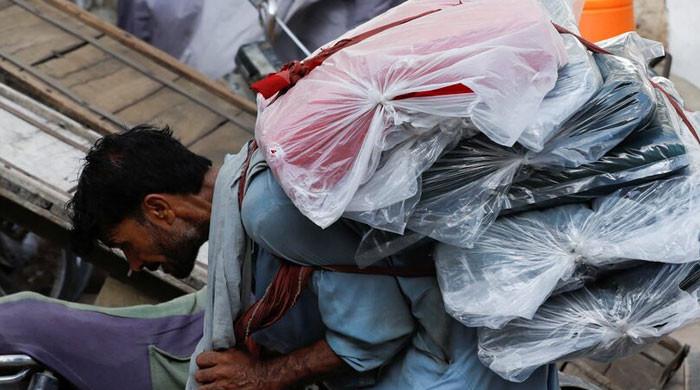A tale of two mothers
The two athletes from relatively humble backgrounds and their equally unpretentious families have lit a torch that had all but died
August 15, 2024
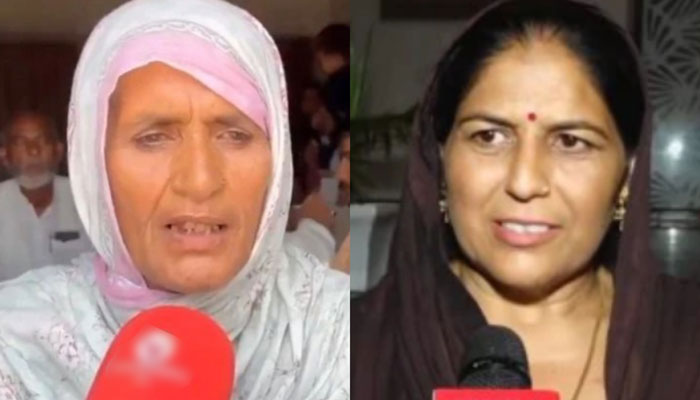
There is never a dull moment in our beloved country. No sooner had the excitement of Arshad Nadeem winning a gold medal subsided that news came of Gen Faiz Hameed’s arrest. The timing may have been a surprise but it was very much on the cards.
The Supreme Court overruled the Lahore High Court’s decision to declare three PTI MNAs as having been elected. In the context of the numbers game in the National Assembly, this decision is significant and will affect other similar matters before the apex court or the Election Commission of Pakistan.
Add to these incendiaries the laws passed by parliament to nullify the Supreme Court’s decision in the reserved seats case. They effectively change the delicate constitutional balance between different state organs but who cares? The purpose is to overcome negative decisions and the rest be damned. Just to drive the point home, these legislative rapiers were accompanied by verbal attacks on the Supreme Court, raising the temperature even further.
But let us focus on the good news and our response to it. Arshad Nadeem’s victory was a tremendous achievement and made the entire nation proud. So did his calm demeanour and lack of crazy hyperbole in celebration. It was also a pleasure to see his easy camaraderie with his opponents including Neeraj Chopra, the Indian athlete.
As is typical, success has many fathers and there was no shortage of them in our blessed land. In the mad dash for taking credit, many made fools of themselves but no one looked more ludicrous than our foisted prime minister. The video in which an enthusiastic courtier gives credit to Shahbaz Sharif’s vision for Arshad’s performance takes the cake. It just about sums up the ridiculous overreach of many for reflected glory.
While these people were pushing and shoving for the limelight, a far more restrained and dignified response was from Arshad Nadeem’s mother. She not only hugged and kissed her son for his performance but also had kind, motherly words to say for his Indian opponent. This was in response to Neeraj Chopra’s mother who had declared Arshad also to be her son and congratulated him.
These dignified and gracious words by the two mothers touched our hearts. We are an emotional people – quick to anger but quick to love too. For a brief wonderful moment, the hostilities seemed to recede and the memory of a thousand years of companionship appeared to take hold. We kept asking ourselves why we can’t settle whatever needs to be settled and start living like friends again.
The two athletes from relatively humble backgrounds and their equally unpretentious families have lit a torch that had all but died. The elites have their various axes to grind but the ‘ordinary’ people want to live in peace. This was true when Saadat Hassan Manto wrote the short story, ‘Toba Tek Singh’, nearly seventy years ago and is true even today.
But how will this logjam be broken? Sports has shown the way and can continue to do so given half a chance. I am not being partisan when I say that the Indian government’s stance on sporting ties between the two countries is ridiculous. The people of both countries look forward to these contests and while it deeply matters who wins or loses, the more we play, the more we build a relationship among the people.
And anyone who argues against the building of a relationship between a billion and a half people of the Subcontinent is either a fool or a charlatan. None of us can wish each other away; the hard reality of geography will always assert itself. We lived next to each other for a millennium and will continue to do so till Judgement Day. Does it make any sense to stoke hostilities and provoke a fight?
It will only end in mutually assured destruction. A world that is coming together in regional groupings of cooperation looks at South Asia as some kind of primitive zone; a place where vast hordes of humanity remain ready to self-destruct. For countries with such high numbers of poverty, we have diverted resources, time, energy, talent and whatever else we have to weapons of mass destruction.
Even our economic relations are schizophrenic. Instead of trading directly as any self-respecting entity would, we spend billions of dollars extra by routing our trade through third countries. Things we can send across the border in days if not hours take months through rerouting. This means that if our total trading potential is a hundred, we are at ten. Just makes no sense.
Blame for all this can be apportioned on both sides but the recent self-serving mantra by the Indian establishment is patently absurd. The assertion by the BJP leadership that we can ignore Pakistan flies in the face of rationality.
Pakistan is not just a neighbour that cannot be wished away but the sixth most populous country in the world and rated by many as one of the major economies of the world in the next twenty-five years. Ignoring all this can only be cynical politics, not any kind of good sense.
The elites are responsible for the narratives that are built, and they shape perceptions. To argue that the Indian electorate responds to anti-Pakistan and anti-Muslim sentiment because it is in their DNA is wrong and deliberately misleading. It is actually the narrative coming from the leadership that is shaping perceptions on the ground.
No one is denying that inter-communal conflicts would take place occasionally in undivided India. But, the anti-Muslim/anti-Pakistan sentiments we see today are the handiwork of the current leadership. If it was inherent among the people there would have been a strong reaction when Mr Vajpayee visited Pakistan. There was none because the leadership was creating a narrative of friendship.
This can be done again by leadership on both sides. Let us begin by toning down the rhetoric and try building a relatively positive image of each other. Emotions don’t come into this. It is just a recognition of the harsh reality on the ground. Remember: we cannot wish each other away.
Then let us go ahead and start sporting and cultural ties and most importantly people-to-people contact through tourism. There is a great hunger to visit each other's countries and that should be encouraged. What I am suggesting is not rocket science. Let us begin by doing the doable.
There are other serious issues to tackle, Kashmir being the most formidable. During the Musharraf period, a lot of progress had been made. The time has come to build on it. The suffering of the Kashmiri people will not end without a serious effort to resolve the issue on both sides. But it is not insurmountable. It can be done.
Let us not allow the candle that has been lit by mothers on both sides just die. We owe it to our future generations.
The writer served as the federal minister of education in the PTI’s federal government. He can be reached at: [email protected]
Disclaimer: The viewpoints expressed in this piece are the writer's own and don't necessarily reflect Geo.tv's editorial policy.
Originally published in The News




